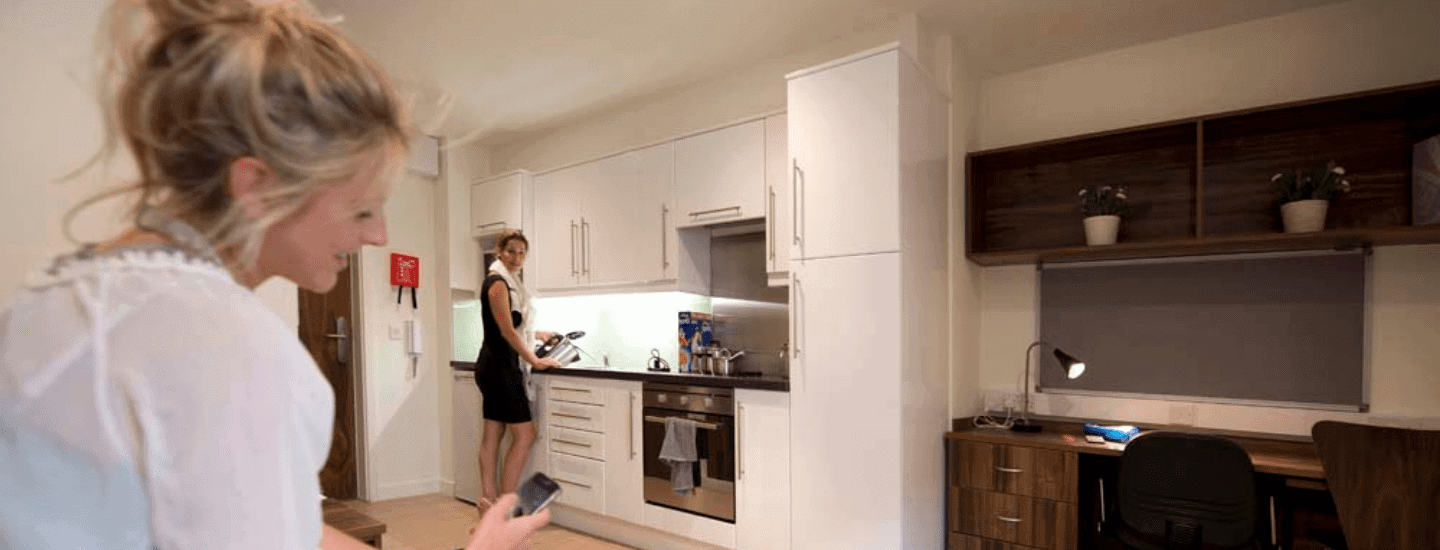News flash! Host Shortlisted for Three Prestigious GSL (Global Student Living) Awards 2025 and Retains Platinum Operator Certification
ROOMS SELLING FAST Find your new home for September

What makes a good listener?
Samaritans are returning this month with their annual awareness campaign #WeListen to get people talking and, more importantly, listening to each other – whatever time of day or night and whatever the situation.
It can be difficult to build up the courage to talk to someone about your problems. But it can also be just as challenging knowing the best way to listen to the problems of others – when to say something and – more importantly – when not to say anything.
You can learn more about the Samaritans campaign here. Below we talk about how to take the right steps to being the best support system for someone else by simply lending an ear…
It’s important to make sure that if you agree to talk to someone that both of you are in a comfortable setting. And setting time aside just for this is important. Invite them over for a catch up or meet them for a drink. Go for a walk if the weather is nice (or share an umbrella if it’s not).

Being present is so important. Not letting distractions like your phone or laptop get in the way. Don’t concentrate too hard on what you will say. It will already mean so much to that person that they have the freedom with you to let out and share what they have been keeping inside.

Silence doesn’t have to be awkward. Or even filled with comments when you’re simply listening. Silence can give you time to reflect on the conversation. The other person may be thinking through their thoughts so you shouldn’t be too concerned.

Having an upright and open posture shows that you are listening and attentive to the other persons words. Keep from crossing your arms as that could be seen as off putting. Your stance should be friendly and open. The great thing with body language is that it’s mostly subconscious – if you genuinely are ready to be there for someone it will come across without having to think about it too much.
Make eye contact when you are communicating with each other. Offer small words of encouragement if you think they may be needed but don’t do it just to fill the space.

You might want to wait until they’ve said everything they wanted to say before asking questions. Questioning what you have been told and prompting them to share more shows that you have listened and actively want to learn more about their situation.

If someone has taken the time to share their personal and often very sensitive thoughts with you – they probably don’t want that spread around.
As a good listener you should keep that private unless they ask you to share. You’ve been untrusted with someone’s feelings.
Remember that you are entitled to receive the same treatment and care if you need someone to listen to you. It should be a two-way exchange.
Samaritans are available 24 hours a day if you need support. You can read our blog about keeping in touch with your mates here.
To become more ‘environmentally friendly’, Host is launching the #HostEnvironmentalPledge campaign to encourage responsible behaviour and drive sustainability across our sites throughout the UK and Ireland.
It’s a simple campaign! For every percent we reduce our overall utilities (electric, water and gas) consumption by we donate to one of our nominated charities.
Show me all newsAs the academic year winds down, many students start packing their bags and heading home for a much-needed break. But what if you stayed in your university town or city instead? Picking up a summer job where you study can be a game-changer - not just for your bank balance, but also for your personal growth and career prospects. Here's why staying local this summer might be one of your smartest moves yet, along with practical tips to make the most of it.
Choosing where to live during your studies in London is about more than just finding a place to sleep - it’s about finding a supportive, safe, and enriching environment that enhances your university experience. Here's why thousands of students choose Host as their student accommodation provider in London every year.



